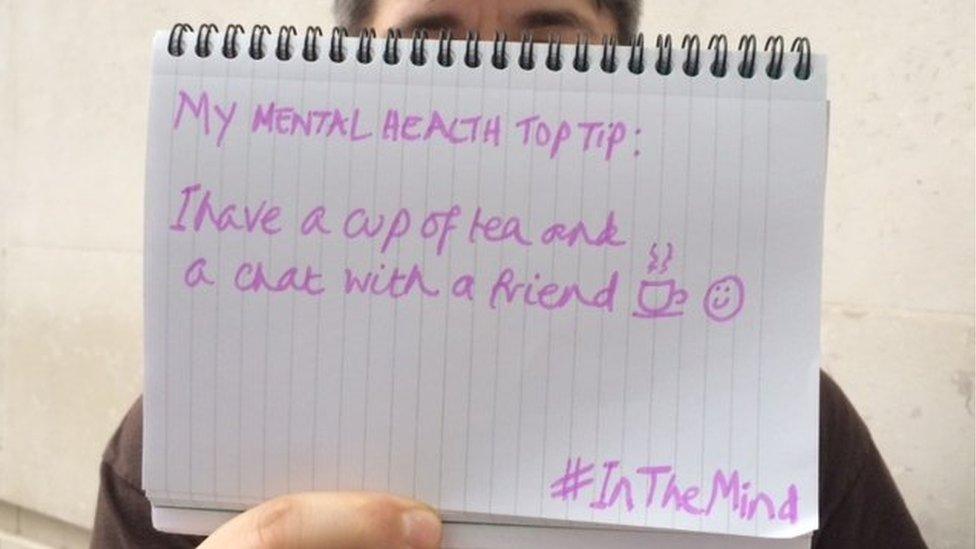Coronation Street's Beverley Callard: Depression 'curse of the strong'
- Published
Beverley Callard and her husband Jon spoke to BBC North West Tonight
Soap actress Beverley Callard has described depression as the "curse of the strong" after revealing she underwent electroconvulsive therapy to treat her own symptoms.
Callard, who spoke to the BBC as part of the In The Mind mental health season, described collapsing on the soap's set in 2009 after feeling unwell for 18 months.
"I knew I wasn't myself and I knew I wasn't firing on all cylinders," says the actress, who plays Liz McDonald in the soap.
"I just didn't think anyone like me would have [depression] because I'm a strong, feisty female."
She added that, prior to her collapse, she would get dressed to go out but then suddenly "didn't want to socialise".
"Because, first of all you feel unlovable - not that you're unloved," she continued.
"And you also find it difficult to love anybody else because you are in this black hole but you can't get yourself out of it."
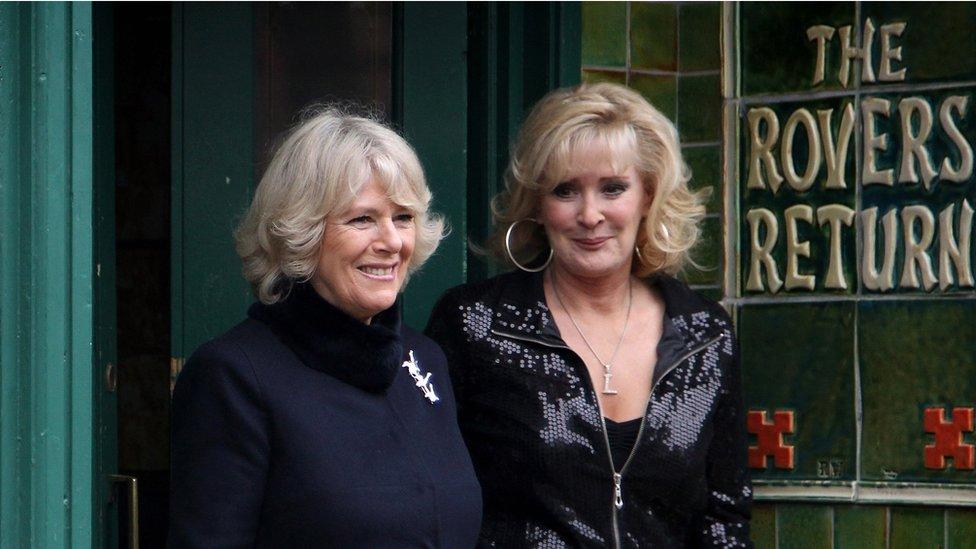
Beverley Callard showed the Duchess of Cornwall around the Coronation Street set in 2010
She first collapsed while driving to the Coronation Street studios in Manchester in 2009 but said she "waited till I felt better, didn't tell anyone - then got back in my car".
"I drove to work at 6.30am and filmed till 8.20pm that night, and then I collapsed."
Medical staff told her that her "body had just gone on shutdown", she says, an indication she had ignored the symptoms for too long.
"I think clinical depression is a curse of the strong - I think you tend to be a people-pleaser, and a perfectionist. If something goes wrong, you try and remedy it yourself and, of course, you can't make yourself better," she says.
As a result of delaying treatment, she became a patient at The Priory centre in London - where she underwent the course of electroconvulsive therapy [ECT], external having "left it far too late" for anti-depressants to work.
Memory loss
Her husband Jon McEwan had to give consent for the ECT - where an electric current is sent through the brain, triggering an epileptic fit that helps relieve severe depression - as she was not then considered by staff to be able to make a decision.
"The whole thing is frightening but it can make people better," she says.
"I had to undergo 12 of those [sessions] and then of course you lose your short-term memory.
"So, then I would think I'll never be able to do my job again… Jon virtually became my carer for a while and so he lost his own identity as well."
He trained as a counsellor to support her and explained the condition's impact was "all-consuming" for their family, including their children.
"I had no experience of depression in any way," he said. "I'm ex-Army - very much 'adapt and overcome'.
"I think the big thing is it's good to talk, and you should always talk... The help is out there, but you have to seek it out, it won't come to you."
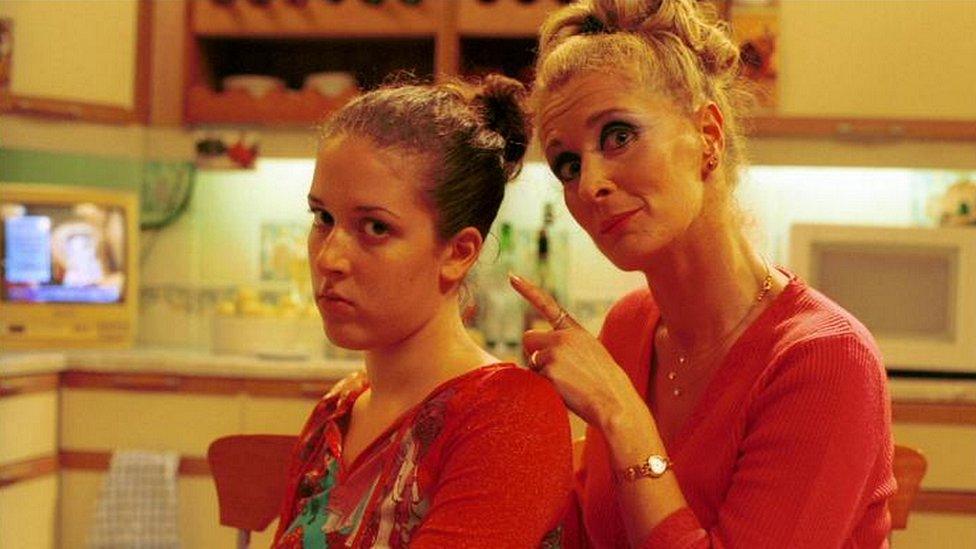
Beverley Callard also appeared in BBC Three's Two Pints of Lager and a Packet of Crisps
Callard, who is now an ambassador for the mental health charity Mind, said: "For the first six months out of hospital, I couldn't write my own name."
She still takes medication, adding: "I occasionally fight the demons but, more often than not, I'm doing very well."
Corrie reaction
Stephen Buckley, head of information for Mind, said a "combination of therapies" often works best.
"It's important to remember that people can and do make a full recovery from depression," he said.
Callard said the response from colleagues was "amazing" but remembers a person "way behind the scenes" suggest she should not take part in the live episodes marking the soap's 50th anniversary in case she became "flaky and unreliable".
"Anybody who really knows me knows I'm not flaky and unreliable - even on the day I collapsed I was still filming till 8 o'clock at night but some people don't understand," she said.
A ITV spokeswoman said the organisation took "their duty of care as an employer extremely seriously" and would "always strive to help any employee who is suffering from ill health or is dealing with personal issues".
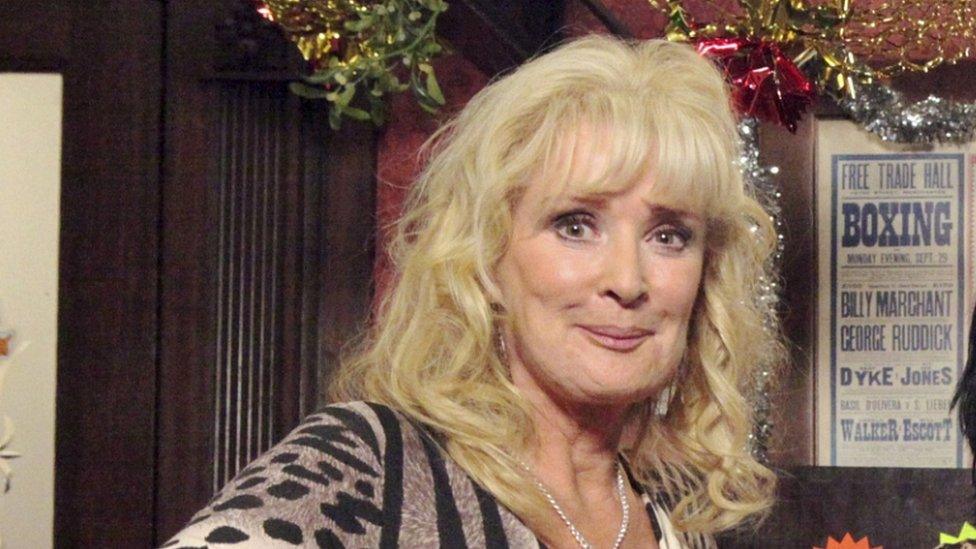
Beverley Callard plays pub landlady Liz McDonald in Coronation Street
Callard welcomes NHS England's plan to commit £1bn extra a year by 2020 to mental health but has criticised the practice of sending patients to hospitals away from where they live.
"I get letters from people whose relatives have been taken to Sunderland or Plymouth or Portsmouth and how can they get better when they are away from their family," she says.
Monday's report from NHS England said it has been "sending people out of area for acute inpatient care", external because of local bed pressures, which it hopes to eliminate by 2021.
When it comes to coping with depression, the actress advises talking to loved ones and a GP.
"You can get better and you will get better - given the right help. I think you've got to come round to the idea that you've got to be strong enough to ask for help and that's hard."

Depression
It is estimated that one in six people will experience depression at some point during their life
The condition affects everyone differently, but common symptoms include feeling irritable, numb and disconnected from other people, losing interest in sex and gaining no pleasure from things usually enjoyed
Antidepressants can be effective for some people, while others may find treatments such as counselling and cognitive behavioural therapy are more appropriate
Stephen Buckley, head of information for Mind, says it is important for people with depression to visit their GP, who can talk about available support
Source: Mind

- Published18 February 2016
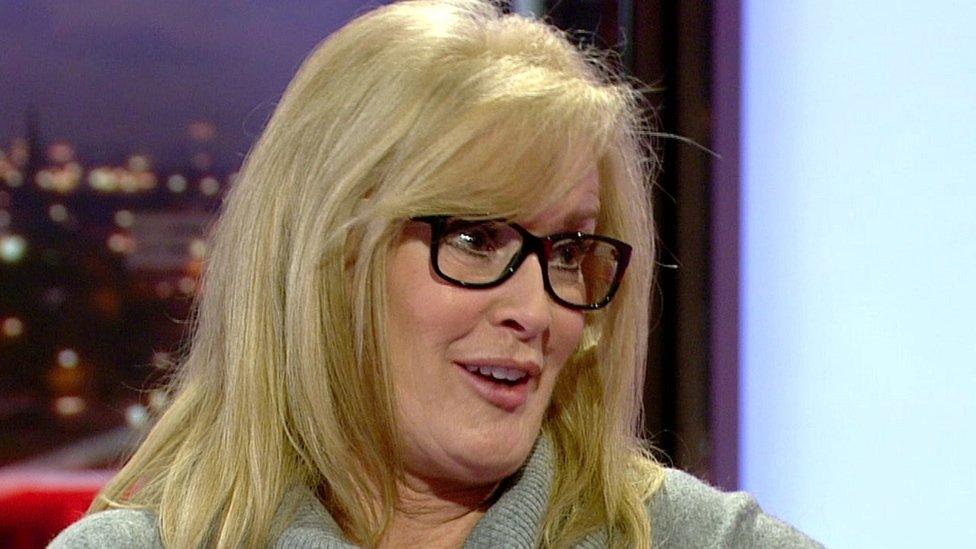
- Published5 February 2015
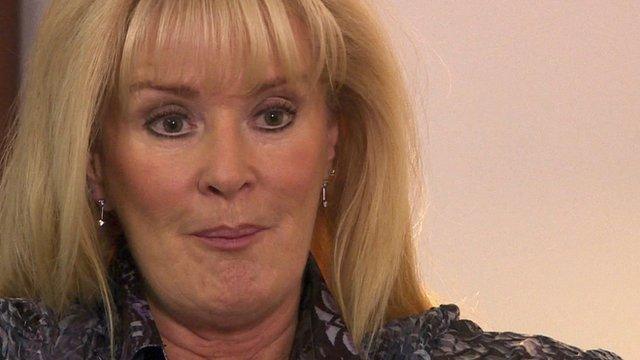
- Published12 February 2016

- Published2 February 2016
